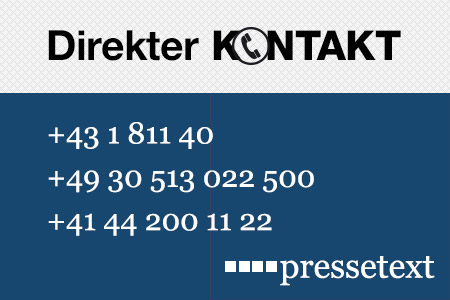Expert interview: 10 questions about compliance training
Christian Wachter, Managing Director at IMC, about compliance training
 |
Christian Wachter (Copyright: IMC AG) |
Saarbrücken (ptp018/19.11.2012/12:30) Christian Wachter, Managing Director at IMC, talks about compliance training in an interview with Tamara Hausmann, PR manager at IMC AG.
IMC: What exactly does "compliance" involve for a company?
Compliance describes the duty of companies to actively ensure that their business is conducted in accordance with applicable regulations and statutory requirements. Such requirements can, for instance, be imposed on the company by government regulators. The company's own rules of conduct may also reflect the corporate culture and corporate values.
A decisive factor for a comprehensive compliance strategy is the involvement of staff. The planning, management, execution, analysis and monitoring of education and training are often organisationally anchored in the HR department, in some cases with the technical support of a Learning Management System.
IMC: What do companies need to take into consideration for these training measures?
There are many relevant factors involved in training obligations. It is particularly important that the company successfully makes its employees aware of specific situations involving compliance risks which could occur during their everyday work. Increasing awareness is the key.
IMC: What topics are some typical examples of mandatory requirements and voluntary measures that are often included in training?
Of course, mandatory training topics differ depending on the sector. These include for example occupational safety and protection, data protection, equal treatment, anti-corruption, anti-trust policies, food hygiene and the prevention of money laundering.
IMC: Are there any mandatory requirements that must be carried out and verified, such as compliance training?
There are no specific process specifications. The correct documentation of the whole operation is, however, important. Particularly in this case, a good Learning Management System can be useful by creating a report on which employee groups were selected for which learning content and who has already completed the measure. Along with tracking and chasing, such a system covers the entire training process.
IMC: What does this process look like in practice?
This is referred to as a compliance management lifecycle. It includes the steps mentioned above: nomination, tracking, chasing and reporting. This means that the compliance officer initially determines which employees are required to attend a training session and then books them on the appropriate course (nomination) in the Learning Management System. In this way, he or she can ensure that all employees in the company know which compliance requirements are crucial for their own responsibilities and have access to the education, training, skill and experience required in order to fulfill these responsibilities.
The tracking allows the responsible person to access, at any time, real-time information about who has already started training or has even completed their training. At the same time, multi-level chasing can also be carried out, which sends the employee email reminders or warnings at correspondingly defined regular intervals. The reporting then provides aggregated statistics about the current status of compliance measures across the company.
The Learning Management System is therefore a convenient starting point for the communication of compliance measures and business processes. The coordinated learning management allows measures to be controlled and common standards to be established, which can then be made available to all employees.
IMC: What is the situation with data privacy in the context of this tracking and reporting functionalities?
Naturally, a large volume of personal data and, for example, individuals' learning progress, are generated during this process. However, these are only available to a very limited group of people. Only those who really need the data are given corresponding access. For instance, a direct supervisor can see which of their employees have started or completed a training course. The cross-departmental compliance officer, on the other hand, needs only the anonymised data for the various departments.
IMC: Employees are so often put under a lot of stress. Apart from the reminder process described above, how can employers motivate them to really work through e-learning content?
As compliance measures usually involve mandatory training, the topics to be covered can actually be a bit dull and therefore are not exactly a help when it comes to increasing employees' self-motivation. However, it is possible to make up for this lack of appeal by presenting the material in the right way. Instead of asking the learner to click through a boring desert of text, the content can be split into modern New Media formats that encourage the learner to actively interact with the material in a variety of ways. To do this, it is necessary to leave the beaten path. At the same time, however, it should be taken into consideration that the duration of the training will not unnecessarily increase, as the entertaining effect will be lost due to the time pressures.
IMC: Does every employee really need to learn about all of the compliance topics in the company or would it make more sense to allocate the material specifically according to target groups - and is this even technically feasible?
Naturally, compliance training is targeted at specific target groups per se and this is precisely the challenge for the company: The right people need to be identified on the basis of specific criteria, such as location or team membership. There are often some people who may belong to a particular team, but still certain courses are not relevant to them due their specific activities, or vice versa. The Learning Management System needs to be able to identify these cases. A good system will establish rules for this purpose, with sophisticated inclusions and exclusions.
IMC: How does IMC support companies during the implementation of their compliance processes?
Firstly, we offer professional advice on the implementation of compliance measures. Furthermore, CLIX 2012, our solution for learning and talent management, also contains compliance functions that support these processes. CLIX enables the automated execution of the entire compliance lifecycle, as already described above.
In addition, we can also offer interestingly presented educational content for relevant issues in the context of compliance.
IMC: What is the future for this topic? What are the trends?
IT-based support for compliance measures is still a trend. Many companies still handle these processes manually. In such cases, a Learning Management System like CLIX could reduce administrative overheads and focus operations in a targeted way. The sensitive nomination criteria also avoid the frequently practiced watering-can principle during training, and significantly reducing the cost for each individual employee. It is worthwhile looking at the issue in more detail!
(end)| Aussender: | imc information multimedia communication AG |
| Ansprechpartner: | Mag. Tamara Hausmann |
| Tel.: | +49 681 9476 302 |
| E-Mail: | tamara.hausmann@im-c.de |
| Website: | www.im-c.de |


